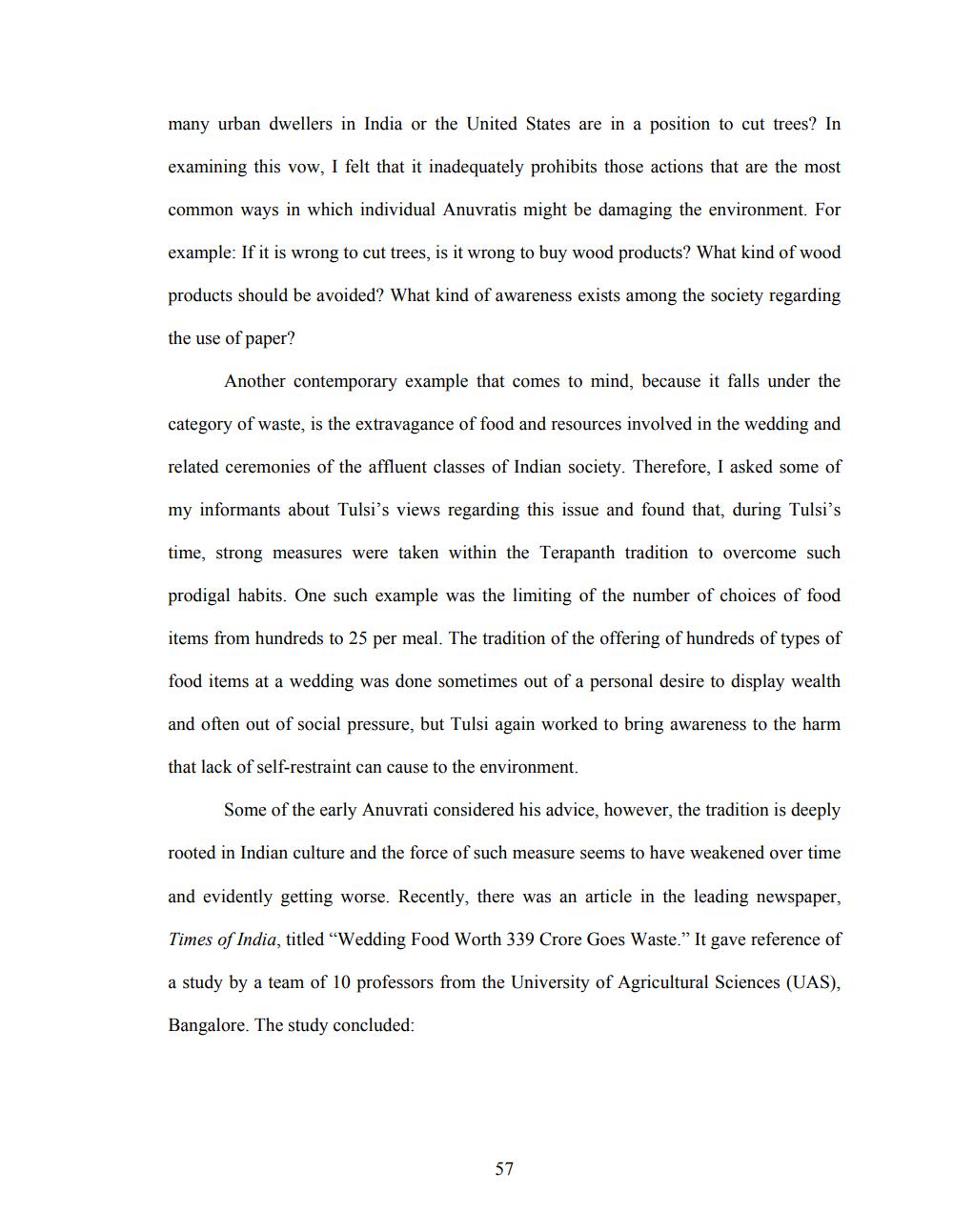________________
many urban dwellers in India or the United States are in a position to cut trees? In
examining this vow, I felt that it inadequately prohibits those actions that are the most
common ways in which individual Anuvratis might be damaging the environment. For
example: If it is wrong to cut trees, is it wrong to buy wood products? What kind of wood
products should be avoided? What kind of awareness exists among the society regarding
the use of paper?
Another contemporary example that comes to mind, because it falls under the
category of waste, is the extravagance of food and resources involved in the wedding and
related ceremonies of the affluent classes of Indian society. Therefore, I asked some of
my informants about Tulsi's views regarding this issue and found that, during Tulsi's
time, strong measures were taken within the Terapanth tradition to overcome such
prodigal habits. One such example was the limiting of the number of choices of food
items from hundreds to 25 per meal. The tradition of the offering of hundreds of types of
food items at a wedding was done sometimes out of a personal desire to display wealth
and often out of social pressure, but Tulsi again worked to bring awareness to the harm
that lack of self-restraint can cause to the environment.
Some of the early Anuvrati considered his advice, however, the tradition is deeply
rooted in Indian culture and the force of such measure seems to have weakened over time
and evidently getting worse. Recently, there was an article in the leading newspaper,
Times of India, titled "Wedding Food Worth 339 Crore Goes Waste.” It gave reference of
a study by a team of 10 professors from the University of Agricultural Sciences (UAS),
Bangalore. The study concluded:




